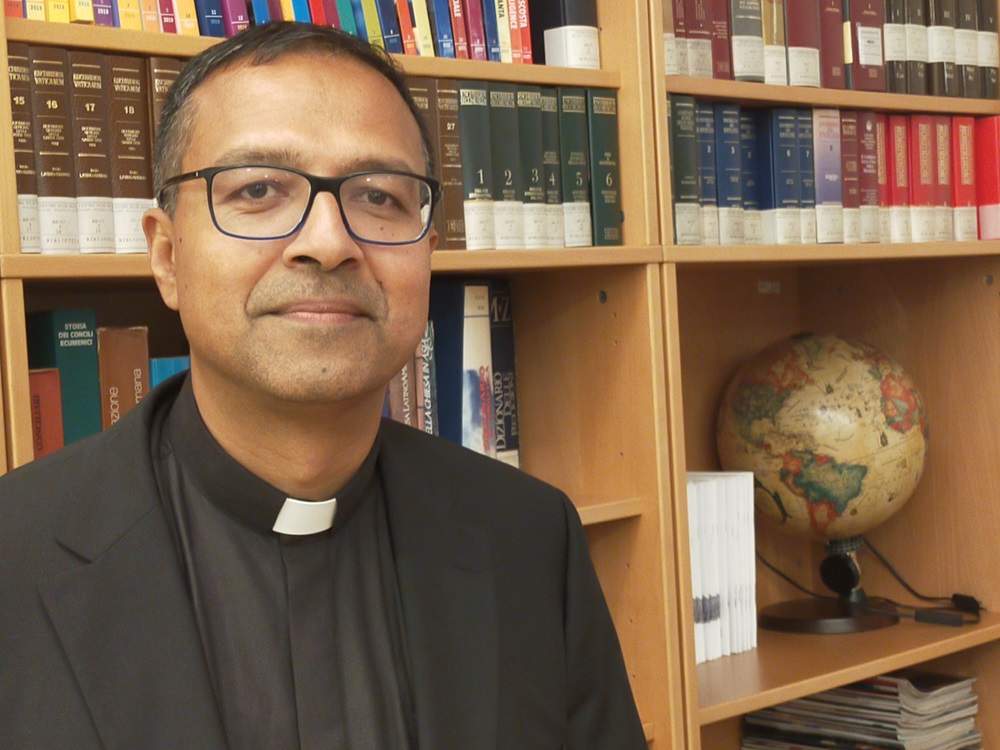D'Souza, a Jesuit scientist from Goa to lead the Vatican Observatory
Leo XIV has appointed Fr D’Souza as the new director of the Vatican Observatory. A scholar of the origins of galaxies, he grew up in India fascinated by Matteo Ricci. He studied physics in Mumbai before specialising in Germany and the United States. Speaking to AsiaNews, he said: "We don't look to the sky to investigate God, but to the complexity and beauty of the universe,” which offers us “new reasons to praise God through a better understanding of his work.”
Vatican City (AsiaNews) – Indian Jesuit Richard Anthony D'Souza will be the new director of the Vatican Observatory, the Holy See's astronomical observatory.
Leo XIV appointed him today, the feast day of Saint Ignatius of Loyola, confirming the choice made by Pope Francis to replace his US confrere, Brother Guy Consolmagno, whose ten-year term expires on 19 September.
This is the first time an Asian religious has assumed such a leading role in a Vatican institution, which is viewed with great interest by the entire scientific community.
Raised in a Christian family in Goa, Fr D'Souza, 47, is an astrophysicist with a PhD from the Max Planck Institute in Munich and further studies at the University of Michigan.
He was already the Superior of the Jesuit community attached to the Vatican Observatory, which currently includes 15 members, who not only work at the historic Castel Gandolfo observatory but also conduct research at the highly advanced telescope located on Mount Graham in Arizona, US.
A member of the Vatican Observatory staff since 2016, Fr D'Souza has focused his research on the origins of galaxies in recent years.
“In practice, I am an archaeologist of the stars," he told AsiaNews in an interview a few months ago. “I study how they were born and how they change over time, through clues that reveal phenomena that happened billions of years ago. How stars form and how different galaxies attract each other until they merge with each other.”
His work on such topics have been published in various international scientific journals, and in recognition of his studies, an asteroid was recently named after him.
In the interview with AsiaNews, Fr D'Souza also talked about the journey that led a young Indian man with many friends among the Jesuits to telescopes. "I was fascinated by the stories of the studies of Matteo Ricci and other Brothers," he recalled. “So, after completing my novitiate, my province sent me to study physics in Mumbai.”
“We do not look at the sky to investigate God, but at the reality of the universe,” he said, speaking about the Observatory's work. “The more we think about the complexity of creation, the more we realise its beauty, even though, in a certain sense, we work to offer new reasons to praise God through a better understanding of his work.”
For him, one question that will become increasingly central to the relationship between science and faith is the presence of other forms of life in the universe.
Today “we have new tools to seek an answer, because we are making great progress in the investigation of what exists outside the solar system. [. . .] I am convinced that within 20 years we will have evidence of the presence of life forms in some of the billions of stars we know exist.”
“We are obviously talking about elementary life forms, molecules; but if they exist, the possibility of development into intelligent life forms cannot be excluded,” he said.
“What would such a discovery mean?” he asks. “And how can it be placed in relation to Revelation? I have the impression that theology will soon find itself dealing with questions such as those raised by the discovery of ‘new worlds’ across the ocean”.







.png)










